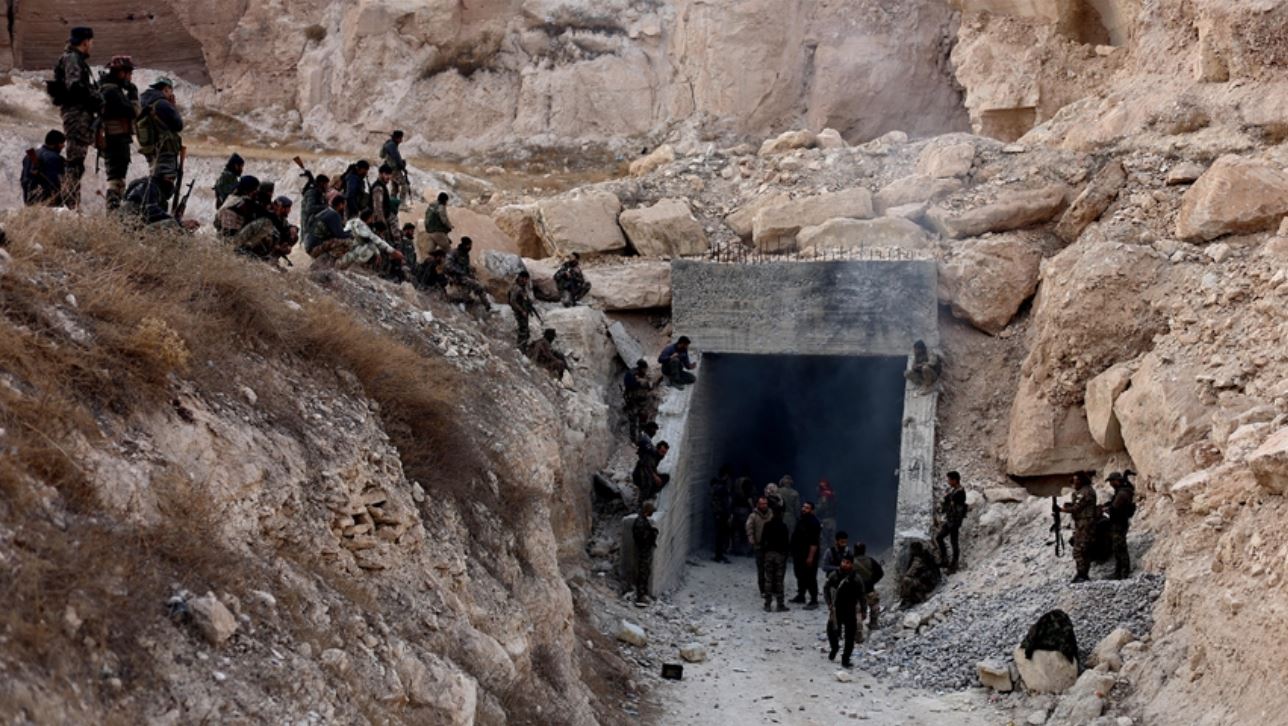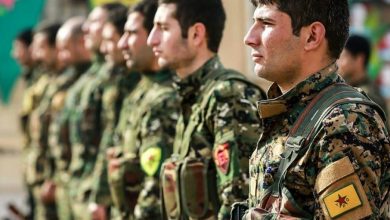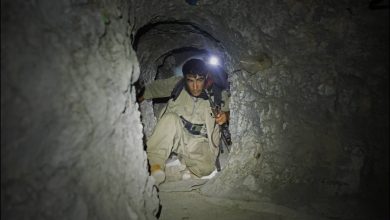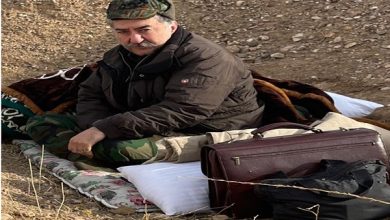In this poignant narrative, an Iranian youth, driven by the deprivations of Sanandaj, was drawn to the PKK in pursuit of freedom. However, what awaited him was not the liberation he envisioned, but a nightmare of forced labor, bitter cold, and the erosion of his identity
Social and psychological issues play a significant role in shaping individual lives and choices, especially in developing societies. One particular concern observed across various communities is the destructive impact of familial and social problems on young people. These issues, which include economic hardship, parental addiction, and family conflicts, can lead to feelings of despair and helplessness. The story of Azad Zandi, a young man born in Sanandaj who faced severe family challenges, serves as a vivid illustration of these negative effects.
Azad Zandi, son of Fathollah, born on February 7, 1996, with an eighth-grade education, grew up in an environment where his family was gripped by profound social and economic crises due to his father’s addiction and constant tensions. These circumstances not only affected his mental well-being but also steered him toward dangerous choices. In such an atmosphere, running away from home seemed like a temporary solution to escape his problems. However, this escape led him into an even more perilous trap: joining the armed group PKK/PJAK.
Groups like PJAK exploit vulnerable youths seeking to escape difficult living conditions by offering deceptive promises of freedom and a better life. Azad Zandi, hoping to find a way out of his struggles, joined this group. Yet, the harsh realities of life within the group—including strenuous unpaid labor and a lack of personal freedom—compelled him to contemplate escape. This experience highlights how despair and family issues can push individuals toward dangerous choices, and simultaneously, how the bitter realities of membership and life in terrorist groups can quickly turn hope into disillusionment.
This interview aims to provide a sociological analysis of this phenomenon by examining the details of Azad Zandi’s life and the factors influencing his decisions. It seeks to demonstrate how social and family conditions can impact the trajectory of young lives, leading them toward high-risk choices. Furthermore, this interview can help us better understand how appropriate social and psychological support can prevent young people from falling prey to armed groups and instead guide them toward healthier, more hopeful lives.
Azad Zandi illegally departed the country in September 2022 and joined the PKK/PJAK. After two years with the group, he returned to Iran in December 2024. According to Mr. Zandi’s statements, he decided to join through a friend named Erfan Zandi (who joined PJAK three months after Azad Zandi due to being a fugitive in Iran) and also through social media, where he saw deceptive advertisements from PJAK promoting freedom, a better life, and migration to Europe. However, once he witnessed the true nature of the armed group firsthand—especially realizing that for two entire years he was merely an unpaid laborer digging tunnels in the caves of Asos and Panjwin—he decided to escape and free himself from those dire circumstances. He surrendered to Asayish Panjwin, who then facilitated his transfer to the Iranian Consulate in Sulaymaniyah, and from there, he was repatriated to Iran.
In His Own Words: A Conversation with Azad Zandi
What led your life path to leaving the country and joining the PJAK group?
Honestly, this decision wasn’t made overnight. I grew up in an environment filled with tension and pressure from childhood. My father was addicted to drugs, and instead of being a supporter for me and my family, he became the main source of our problems. Family quarrels, neglect, emotional and financial poverty—all of these led me to drop out of school during middle school. Gradually, I reached a point psychologically where I felt there was no way out. After a while, the pressure became so intense that I decided to leave home. I had no hope for my family, nor could I imagine a future for myself in Sanandaj. I just wanted to escape that environment. That’s how, in September 2022, without informing my family, I crossed the border into the Kurdistan Region of Iraq.
Why did you specifically choose the PJAK group? Were you familiar with them beforehand?
Frankly, no. I had no accurate understanding of the group’s true nature. Everything was very superficial and emotional. The main factor was the propaganda I saw on social media and what a friend of mine, Erfan Zandi, was saying. Erfan himself had left the country a few months after me. He constantly spoke of the “free” conditions there, of grand ideals, training, migration to Europe, and opportunities for a “fresh start.” Being embroiled in an identity crisis and severe family problems, I was easily drawn in by these slogans. I thought that by going there, everything would change, and I could start anew. But reality quickly revealed itself.
What was it like the moment you joined the group and faced reality? What was contrary to your expectations?
From the very moment I arrived, everything was strange and unexpected. They took us to a remote area in the mountains of Asos and then to Panjwin. Immediately, they took all my belongings: my phone, money, extra clothes… I had no access to the outside world. After just a few days, it became clear that there was no talk of training, no migration to Europe, and not even a peaceful life. I was told to work digging underground tunnels. At first, I thought this was temporary and conditions would change later. But the reality was that I had become a full-time, unpaid laborer. I was working for an armed group. The living conditions were completely unsuitable.
What were the conditions like working in the tunnels?
Extremely difficult and unhygienic. We worked long hours in the dark, with simple tools and no safety clothing or equipment. The air inside the tunnels was heavy, with low oxygen and a lot of dust and humidity. Many of the young people suffered from respiratory infections, skin sores, or even bone problems. Food was scarce, clothes were old and uniform, and rarely changed. Winters were unbearably cold. There were no heaters and not enough blankets. We slept in the cave, on the cold, damp ground. Sometimes we couldn’t sleep at night due to the extreme cold.
Did you ever feel there was discrimination within the group? For instance, between Iranian members and other nationalities?
Yes, absolutely. One of the biggest shocks for me was that while they promoted slogans of equality and brotherhood, there was clear discrimination in practice. Iranian members of the group, especially newcomers, were usually forced to do difficult, exhausting, and menial tasks. Meanwhile, Turkish Kurds or older members had higher status, better food, and even access to more information. I often saw Iranians having to cook for others, clean their living quarters, or participate in more dangerous tasks. This inequality was one of the deep reasons for my dissatisfaction.
During those two years, what was your emotional and mental state like?
It was very difficult. A person who enters a place with a thousand hopes and motivations and suddenly finds themselves in a black hole of injustice, forced labor, poverty, and isolation gradually breaks down. In those conditions, I sometimes thought there might be no way back, and I would have to stay in those mountains for the rest of my life. Not just the work, but the psychological pressure, restricted communication, constant control, and even hearing about the suicides or failed escapes of other members wore a person down. I felt like a prisoner of war, not a member of a group claiming to fight for a cause.
When did you decide you had to escape?
Almost after two years. When I saw that everything they had told me was a lie, when I understood that even initial promises like migration to Europe were merely tools to attract recruits, when I saw people disappearing or being punished for attempting to escape, I decided to find a way out. However, since the area was under the group’s control, an easy escape wasn’t possible. I planned for a long time, found trustworthy individuals, and finally, with great courage, I managed to reach one of the Asayish headquarters in the Panjwin area.
Did the Asayish forces cooperate with you? What was the process like for you to return to Iran?
Fortunately, yes. After I introduced myself to Asayish Panjwin and provided detailed information, they cooperated with me. I was detained by them for a few days so my identity and background could be verified. After that, they transferred me to the Iranian Consulate in Sulaymaniyah, and from there, arrangements were made for my return to my country.
After returning to Iran, how did the security and judicial authorities treat you? Were you concerned about harsh treatment or a severe trial?
Naturally, I was worried, as many assume that returning from such groups involves severe penalties. But in reality, the authorities’ treatment was very humane and fair. My case went to the Revolutionary Court of Sanandaj. Considering my age, family problems, the circumstances of my recruitment, and my cooperation with the authorities, the judge sentenced me to six months in prison. However, after only 35 days, with the judge’s decision and conditional release, I returned home. During my detention, I was also treated well; there was no humiliation, torture, or insult.
Now that you’re back, how do you feel about the past? And how do you see the future?
If I had to sum it up in one sentence: I feel reborn. I lost two years of my life, but in return, my eyes were opened to reality. I won’t be deceived by any slogans anymore. Real life is right here, with family, even if it’s full of problems. I’ve now opened a small shop in Sanandaj. I’m moving forward day by day through my own efforts. I’m looking for a simple life—no politics, no war, no empty slogans. If someone is in my past situation now, I would only tell them one thing: don’t be deceived. On the other side of the border, there is no salvation, no freedom; only darkness.






